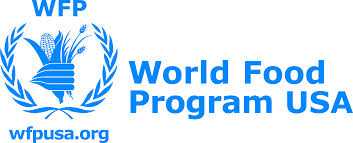PANAMA CITY – The United Nations World Food Programme (WFP) is providing food assistance among small coffee producers, seasonal workers and their families in Central America, who have been affected by the current epidemic of Coffee Rust.
This fungal disease destroys the leaves of coffee plants, lowering yields, diminish fruit quality and sometimes devastating entire plantations.
“WFP is concerned that this outbreak of Coffee Rust may turn into an acute and prolonged food security crisis for small coffee growers and their families. This may force workers to migrate internally or to other countries in the region to find jobs,” said WFP Deputy Regional Director, Alzira Ferreira, of the WFP Regional Bureau for Latin America and the Caribbean.
The epidemic – considered one of the worst in recent history – was detected in late 2012 in the coffee plantations of Central America and the Dominican Republic, where coffee production is the main source of income for nearly two million people, many of them small producers or seasonal workers in rural areas.
By mid-2013, four countries declared a national emergency (Guatemala, Honduras, Nicaragua and the Dominican Republic).
Following the approval of an Action Plan by the Central American Council of Ministers of Agriculture (CAC) to combat the Coffee Rust, WFP is helping governments conduct food security assessments –together with FAO and other partners—to determine how many people have been affected and their location, and carrying out immediate food distributions.
Until the end of December, WFP is planning to assist some 53,000 families in Central America, many of them through food-for-work activities. Food for work provides food-insecure households with the opportunity of working to restore and protect their livelihoods in a sustainable way while getting paid with food rations.
In El Salvador, WFP is distributing food among 10,000 families in 26 of the most affected municipalities of the country following a WFP food assessment last May.
Through a National Food Assistance Plan, WFP has partnered with the Government of El Salvador and six NGOs (FUSAL, Oxfam, Plan International, World Vision, Save the Children and Catholic Relief Services) to carry out these distributions. With the forecasted reduction of coffee yields for the 2013/2014 harvest, WFP is concerned that the food security situation of more Salvadoran families is likely to worsen.
For this reason, WFP will carry out a new food assessment and will prepare a joint strategy to assist vulnerable families.
In Honduras, WFP is reaching more than 8,300 families in 11 departments in need of food assistance. As many as 100,000 jobs will be lost in Honduras as result of the Coffee Rust Crisis. WFP signed a partnership agreement with the Association of Honduran Coffee Producers (AHPROCAFE) and the Honduran Coffee Institute (IHCAFE) to assist the families living in 61 municipalities through food-for-work activities, which promote the rehabilitation of farmlands, and help farmers grow alternative crops.
In Guatemala, WFP and partners identified 35,000 families whose income depends on the coffee market and who are affected by severe or moderate food insecurity. In August, WFP distributed food to some 15,000 families.
However, the WFP assessment showed that further tens of thousands risk falling into food insecurity if more jobs are lost to the Coffee Rust.
Meanwhile, WFP and the governments of Nicaragua and the Dominican Republic are currently organizing assessments to determine the impact of the Coffee Rust on the food security of their population.
















